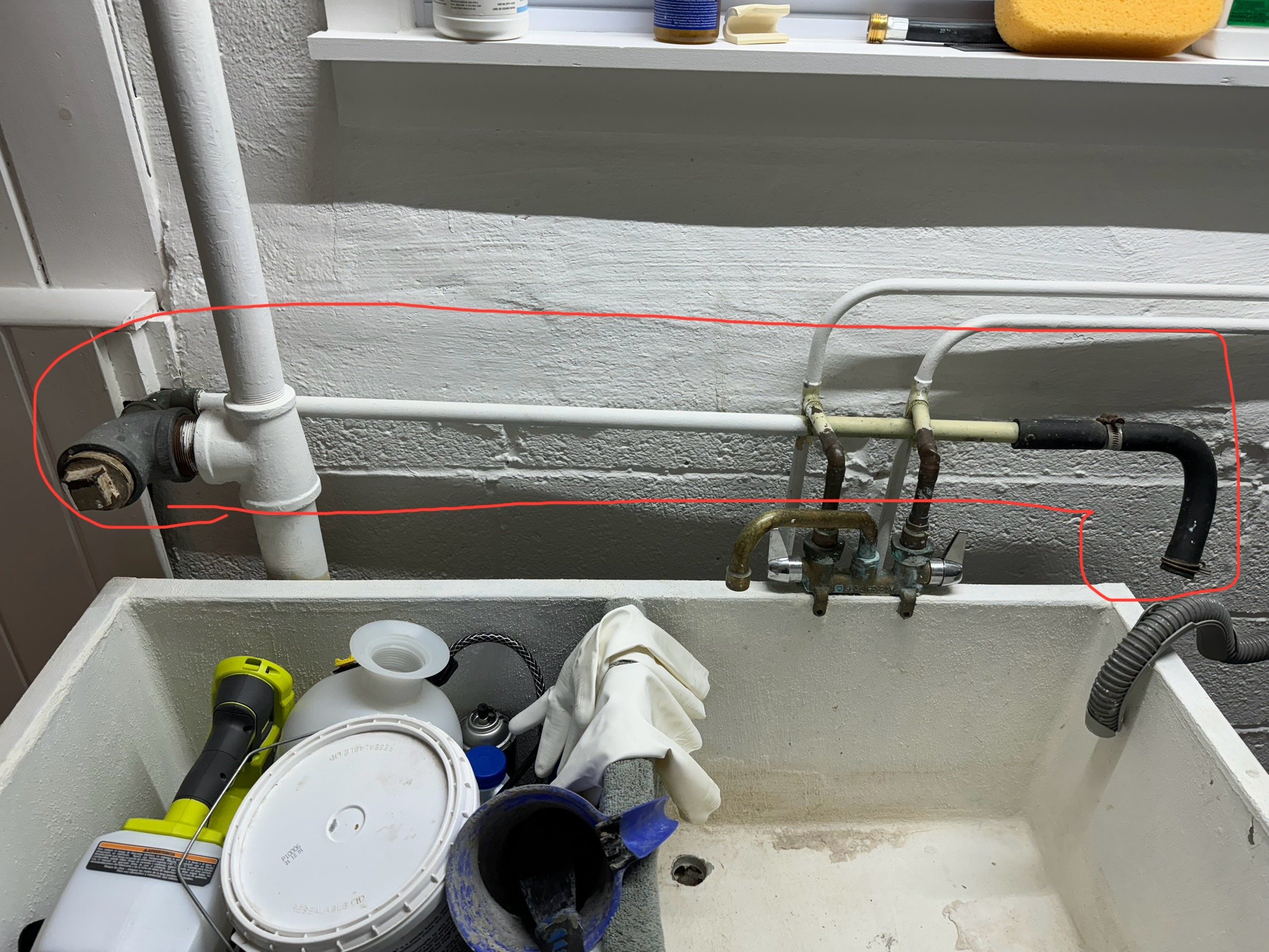Our laundry room sink has this bizarre attachment to to the back of the drain line clean out. It would almost seem like it was or is supposed to be a vent. Recently it’s started to give off a foul sewer smell when our washing machine rinses.
Can I safely plug it? Maybe remove it if I can manage to pry it off? When I asked our plumber what it was, he just smirked and said it was a “crazy thing.”
Sewer lines need to be vented in order not to create a pressure differential that causes problems. There are a couple different approaches, but that shit isn’t one of them; it kind of looks like something a plumber just threw in there to solve their immediate problem and then scooted away from free of consequence.
I wouldn’t recommend plugging it, as you might be taking away a needed vent from the whole system… the two options I could see would be:
- Hire a plumber to fix the bullshit in more proper fashion
- Replace that rubber hose at the end with a longer hose, and put the open end at the bottom of a bucket that you keep filled with water (either in the sink or on the ground). You’re effectively creating a weird custom type of P-trap. It’s ghetto but it’ll solve the smell problem while still allowing pressure to equalize, I think. You might want to ask your plumber if that would be a sensible solution just to double-check.
I’m open to the ghetto solution for the time being while I cap it. I replied to another comment with a pic of the main vent stack so it looks like I’ll be able to cap it. Just have to figure out the best way to do that.
They make what is called a studor vent for this situation. Not sure if there are code restrictions for different areas. If allowed you can put them under sinks etc to get better venting of sewer lines.
Huh! I’d never seen one before. Really simple fix. Thanks for the suggestion!
I’d get a new plumber and have him fix it. Your current guy doesn’t seem helpful or like he knows.


“a crazy thing” thanks plumber… Real helpful.
As long as the vertical pipe above it isn’t plugged, you should be fine to just plug that offshoot. It’s part of the vent stack for that drain, which is why it smells like a sewer. Presumably there was something else plumbed in there to drain out at somepoint, but has since been removed.
Almost exactly what I said too.
Thanks for taking a look and the advice. I just went through our old demo pics and noticed the small pipe runs up and joins the primary vent stack. Now I can plug it and be done with that stench.
Think an expansion plug or should I try to chop the pipe and cap it?

Perfect. Capping is the better long term solution, but an expansion plug will do the job.
I wouldn’t cap it but put in a Studor vent if there is a chance that you need more venting.
It’s strange that it has a 90 for the clean out and also has an open connection on the right. If this is a vent stack it should be stinking up the place always. I guess maybe when the washing machine drains it creates some negative pressure that causes methane to leak in. If the vertical pipe is actually a vent stack you should be able to plug the open connection on the right side. Another comment is make sure any p trap has a bit of water in it. Traps will also leak methane when they start to dry out.



